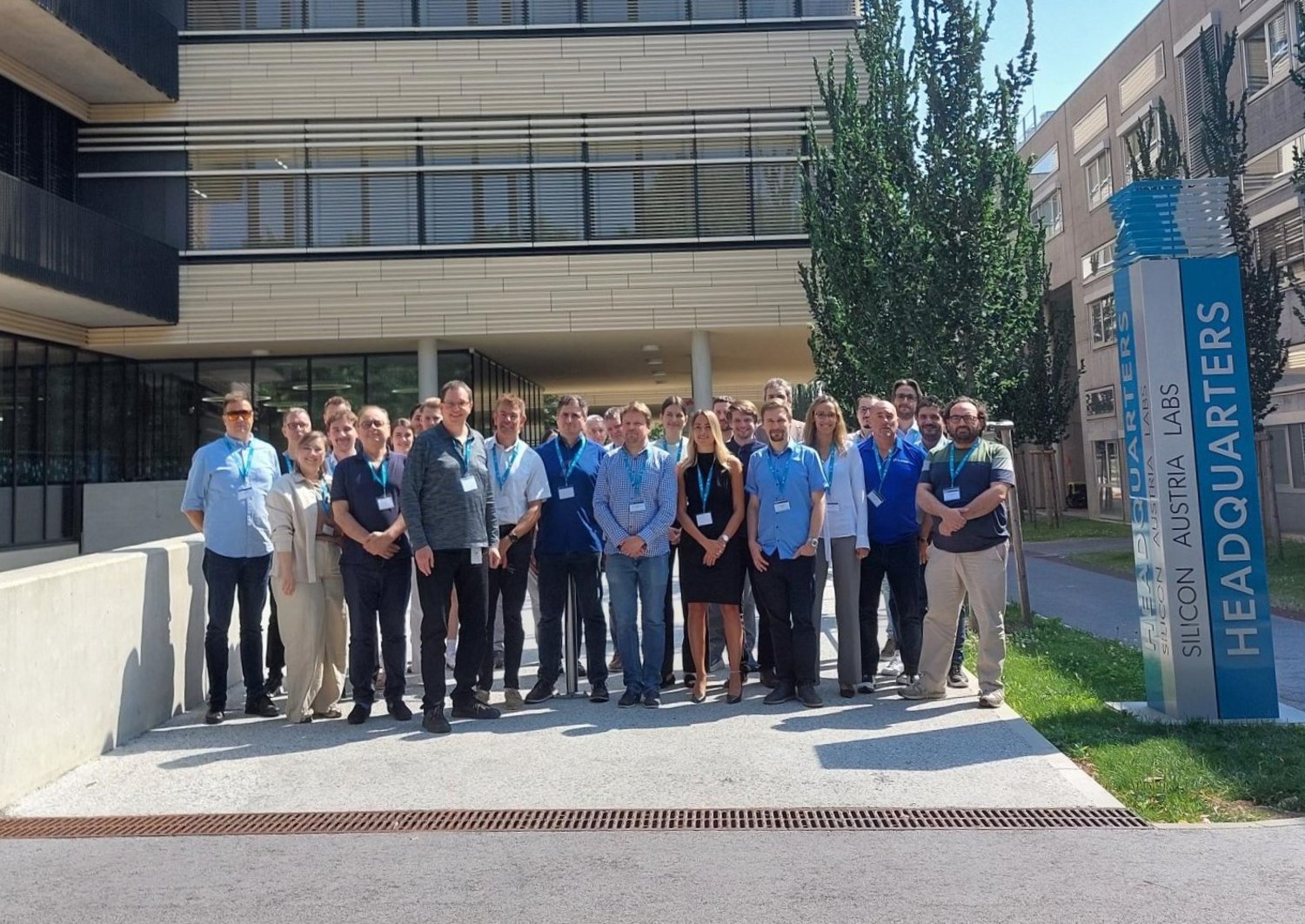Wearable health technologies – devices such as fitness tracking watches or wristbands, but also smart textiles equipped with sensors that measure body parameters – have gained great popularity in recent years. These devices have seen various updates in the last decade, however, there is still room for improvement in several areas – which is where the EU-funded project EU-TRAINS comes in. By integrating body parameter sensors, microcontrollers, and data communication units into textiles and wearables, EU-TRAINS aims to transform both fitness and healthcare applications, improving their functionality even in challenging environments such as training activities in water.
Silicon Austria Labs (SAL) is coordinating the project, which comprises 18 academic and industrial partners from nine European countries. Furthermore, SAL leads the central work package on electronics design and integration and contributes their state-of-the-art lab facilities to perform tests of the wearable integrated sensors and microcontrollers before they will be evaluated in the field by real test persons.
Jörg Schotter, project coordinator and Staff Scientist for Electronic Sensors about SAL’s research capabilities: “Within our Validation Lab at the SAL location in Graz, we can test the required sensors and electronics under different environmental conditions such as high or low temperatures, humidity, and vibrations. We will also test the corrosion effect in saline environments, which is particularly relevant for people using wearable technologies when swimming in the sea.”
Fit and healthy from home: wearable devices for remote health monitoring
Self-monitoring in sports training demands reliable real-time data on body parameters. Both the general public and professional athletes already make use of wearable devices to precisely monitor their performance and physiological responses. To better manage and monitor these body parameters, EU-TRAINS aims to develop data transmission techniques with low latency and robustness which can be used for both land-based and water-based sports. To reduce the amount of data to be communicated, the project team will implement edge-AI techniques, meaning that the data will be pre-processed at the level of the sensors and of the microcontroller before being communicated to the periphery devices (e.g. smartphones) and the linked cloud services.
Furthermore, wearable health technologies play a crucial role in remote healthcare, which was highlighted by the recent COVID-19 pandemic. EU-TRAINS focuses on creating user-friendly monitoring devices that patients can wear routinely at home. By seamlessly integrating sensing devices into textiles, treatments can be monitored from home, avoiding long hospitalizations and improving the quality of life for affected patients and their caregivers.
Research consortium for a better European healthcare system
EU-TRAINS brings together expertise from Austria, Germany, Italy, France, the Netherlands, Finland, Poland, Ukraine, and Spain. Collaborators include leading research institutions and industry partners, all committed to advancing wearable health technology. By combing European strengths in the semiconductor industry, EU-TRAINS aims to enable a fully European value chain of semiconductor-based devices in different healthcare systems and to give Europe the competitive edge in wearable sensor-based health technologies.
Partners:
Silicon Austria Labs GmbH | Ludwig Boltzmann Gesellschaft – Österreichische Vereinigung zur Förderung der Wissenschaftlichen Forschung | Sansirro Gmbh | Deutsche Sporthochschule Köln | Stmicroelectronics Srl | CUBIT – Consortium Ubiquitous Technologies S.c.a.r.l | Universita Di Pisa | Xtremion Technology Forschungsgesellschaft Mbh | STmicroelectronics (Alps) SAS | VALOTEC | Stichting Imec Nederland | Kubios Oy | Dac.digital Spolka Akcyjna | National Technical University Of Ukraine Igor Sikorsky Kyiv Polytechnic Institute | Siec Badawcza Lukasiewicz – Instytut Mikroelektroniki I Fotoniki | Technische Universität Chemnitz | Technische Universiteit Eindhoven | Medtronic Iberica Sa
For more information, visit the project website
About Silicon Austria Labs (SAL)
Silicon Austria Labs GmbH (SAL) was founded in 2018 as a top non-university research center in the field of electronic based systems. At its locations in Graz, Villach and Linz, research is conducted on key technologies in the fields of Microsystems, Sensor Systems, Power Electronics, Intelligent Wireless Systems and Embedded Systems. SAL brings together key players from industry and science and thus valuable expertise and know-how, and conducts cooperative, application-oriented research along the value chain. The aim is to accelerate the value creation process from idea to innovation – with excellent research and economic benefits. Owners are the Republic (50.1%), the Provinces of Styria and Carinthia (10% each), the Province of Upper Austria (4.95%) and the Association for the Electric and Electronics Industry (24.95%).
Contact:
Silicon Austria Labs GmbH
Isabella Preuer, BA BA MA
Head of Communications & PR
+43 664 832 97 73
press@silicon-austria.com





